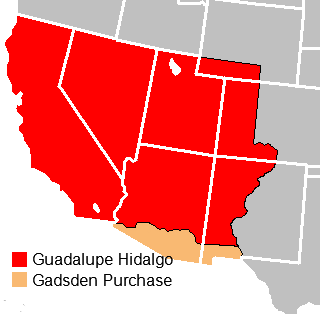Historians like to rate Presidents on their greatness, but it’s also useful to think of how consequential they were. By this I mean, for good or ill, how much did it matter that they occupied the Oval Office instead of someone else? Did their decisions produce consequential outcomes, whether good or bad? Here is my chronological list of consequential Presidents.
(1) George Washington – no explanation necessary.
(2) Thomas Jefferson – Jefferson won his fame mostly before becoming President, but the Louisiana Purchase was huge.
(3) James K. Polk – Polk is virtually never mentioned, but he took Texas, New Mexico, Arizona, and California from Mexico, mostly as a result of the controversial Mexican-American War, which we ginned up because we wanted to take territory. This constituted more than half of what had previously been Mexico.
(4) Abraham Lincoln – No explanation necessary.
(5) Theodore Roosevelt – No explanation necessary.
(6) Franklin Roosevelt – No explanation necessary.
(7) Lyndon Johnson – the Great Society; the Vietnam War.
(8) Richard Nixon – the Vietnam War; the opening to China; Watergate.
(9) Ronald Reagan – the Reagan Revolution.
(10) Barack Obama – Obamacare.
Thoughts?(2) Thomas Jefferson – Jefferson won his fame mostly before becoming President, but the Louisiana Purchase was huge.
(3) James K. Polk – Polk is virtually never mentioned, but he took Texas, New Mexico, Arizona, and California from Mexico, mostly as a result of the controversial Mexican-American War, which we ginned up because we wanted to take territory. This constituted more than half of what had previously been Mexico.
(4) Abraham Lincoln – No explanation necessary.
(5) Theodore Roosevelt – No explanation necessary.
(6) Franklin Roosevelt – No explanation necessary.
(7) Lyndon Johnson – the Great Society; the Vietnam War.
(8) Richard Nixon – the Vietnam War; the opening to China; Watergate.
(9) Ronald Reagan – the Reagan Revolution.
(10) Barack Obama – Obamacare.


